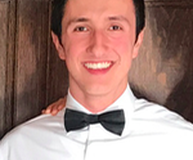Penn Undergraduate Refugee Empowerment Group Commits to Advancing Human Rights at the UN
Stephen is a co-founder of Penn Undergraduate Refugee Empowerment Group and is a human rights advocate.
On December 31, as 2017 took its last breaths, United Nations Secretary-General António Guterres released a short video in which he spoke bluntly and without equivocation: “I am issuing a red alert-a red alert for our world…As we begin 2018, I call for unity.”
Mr. Guterres’ alert came at a moment of unprecedented humanitarian strife, particularly in regard to the global migrant crisis. Recent data show 65.6 million people forcibly displaced across the globe, 22.5 million of whom are refugees. Dynamics in Myanmar threaten to further enlarge these numbers, while world leaders simultaneously flirt with nationalist and xenophobic rhetoric.
In times like these it can be easy to fall into debilitating discouragement, to slip into mentalities more conducive of apathy than advocacy. Yet while the need for a remedy has never been as dire, the potential to meet that need has never been so immense.
It is this sentiment that drives Penn Undergraduates for Refugee Empowerment (PURE), a new organization at the University of Pennsylvania. I founded PURE last spring after realizing, with a shock, that no organization for refugee advocacy existed at the University of Pennsylvania’s undergraduate level. Once created, PURE quickly grew as more and more students realized the power of their privilege and their incredible potential to influence. In its inaugural year PURE grew to a membership of 106, with volunteers spanning disciplines, nationalities, religions, sexualities, and creeds.
In its first year, PURE members volunteered in many different ways, from tutoring to fundraising to advocacy and awareness. Approximately 25 volunteers connected with refugees overseas and in Philadelphia to provide ESL tutoring support, while others worked with Lea Elementary School in Philadelphia to streamline and encourage a pilot program for young students. Members of the advocacy and awareness team carefully curated film screenings and speaker events, partnering with campus resources and organizations to spread awareness and encourage informed academic discourse. Fundraising volunteers raised over $500 to go towards a refugee’s college tuition.
Though the types of membership differ, what grounds all involvement in PURE is a commitment to effective advocacy that stems from the building of coalitions. This is evident in the partnership between PURE and Penn Law, a cooperation that pools resources to strengthen law school projects and expose undergraduates to active casework. PURE facilitated a relationship with the Transnational Legal Clinic that allows undergraduates to serve as interpreters and translators on legal cases, and several PURE volunteers are now entered into the Clinic’s database, called on a case-by-case basis to provide assistance.
Penn undergraduate and PURE member Alex Ciullo recently finished working on an active case thanks to this partnership. She met with the legal team twice a week, and said of her experience:
“This opportunity confirmed that this is definitely the career path I want to pursue. Hearing our client’s story has also opened my eyes so much as to what life is like in other countries and how lucky we have it here in the U.S. But most importantly, I have been able to play a small role in getting a refugee the help that she so desperately needs and deserves.”
Ciullo’s experience shows that students can and should be more than students. With the help of organizations and fruitful partnerships, they can be pioneers, change agents, and leaders of unparallel influence, fully realized to their greatest potential.
It is with this mindset that six PURE members arrived at the United Nations on January 8, 2018 to attend a conference on student activism in the refugee crisis. PURE presented a poster alongside student groups from around the world, speaking with humanitarians and UN officials about the many ways Penn students can advocate for vulnerable populations. The next day, PURE members joined students and delegates from 10 other global universities for a summit. I spoke on a panel about student potential, the perils of ‘slacktivism,’ and how to build upon momentum.
At the summit’s close, I signed an action charter along with representatives from Germany, the U.K., Cyprus, China, and Brazil committing PURE to advancing the UN Declaration of Human Rights on Penn’s campus and continuing to advocate for migrant populations. The United Nations now views Penn as a leader among global institutions when it comes to humanitarian work, and has asked to engage in six-month progress reviews to track action and maintain inter-campus accountability.
The summit occurred just days after Secretary-General Guterres’ red alert, yet his words served not as a warning but as a reminder, one that now, with the growth of PURE and its relationship with Penn Law, seems all too clear: when bonded together, students can affect change they couldn’t possibly have imagined alone.





